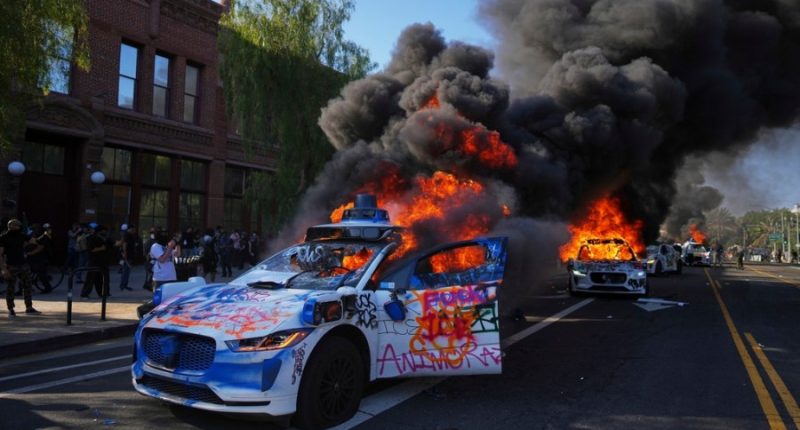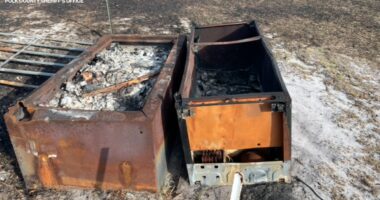Share this @internewscast.com

() In an attempt to subdue protesters, President Donald Trump has deployed more than 4,000 National Guard troops and 700 active-duty U.S. Marines to Los Angeles.
The moves have drawn backlash from California Gov. Gavin Newsom, who has filed a lawsuit against Trump over what he says is an “unlawful” deployment of federal troops to LA County.
Trump cites federal code for sending troops to LA protests
In sending troops to LA, Trump cited Title 10 of the U.S. Code, which allows the president to “call into federal service members and units of the National Guard of any State in such numbers as he considers necessary” when there is a rebellion, an invasion or the danger of either happening.
“Orders for these purposes shall be issued through the governors of the States or, in the case of the District of Columbia, through the commanding general of the National Guard of the District of Columbia,” the code reads.
Newsom did not request troops in LA, and the state’s lawsuit says there was neither a “rebellion” nor an “invasion,” nor the possibility of either.
Trump’s federal troop deployment is the first without a governor’s request since the Civil Rights Movement and a violation of federal code, according to California’s lawsuit.
“I will say, and I know that there are people that disagree with me on this, when I read the federal statute … it does look like a broad grant of authority to me,” Jessica Levinson, a professor at Loyola Marymount University, told on Monday.
She said California faces an “uphill battle” in the lawsuit.
Posse Comitatus Act: Does it override Trump’s orders on LA protests?
Enter the Posse Comitatus Act, an 1878 law that forbids the U.S. military from participating in civilian law enforcement on U.S. soil.
Exceptions include enforcement approved by Congress or under circumstances that are “expressly authorized by the Constitution.”
Notably, the Posse Comitatus Act refers only to the Army and Air Force a different statute, 10 U.S. Code 275, forbids Navy and Marine Corps members from the same thing.
According to the nonprofit Brennan Center for Justice, “members of the National Guard are rarely covered by the Posse Comitatus Act because they usually report to their state or territory’s governor.”
“However, when Guard personnel are called into federal service, or ‘federalized,’ they become part of the federal armed forces, which means they are bound by the Posse Comitatus Act until they are returned to state control,” the center said.
Essentially, the act prevents federal troops from doing anything other than supporting Immigration and Customs Enforcement and protecting government personnel and property.
But there is one notable override: the Insurrection Act.
Will Trump invoke Insurrection Act to quell LA protests?
A more far-reaching law, originally enacted in 1792, could allow Trump to override the Posse Comitatus rule and deploy the U.S. military domestically against Americans.
The Insurrection Act can be invoked to suppress rebellion, violence or enforce the law in certain situations.
“In theory, the Insurrection Act should be used only in a crisis that is truly beyond the capacity of civilian authorities to manage,” the Brennan Center said, adding that the law fails “to adequately define or limit when it may be used.”
“If things escalate over the next 12, 24, 48 hours, we could see the president trying to use his power under the Insurrection Act,” Levinson said.
“That would give the National Guard and the military in general much more power because it is an exception to that Posse Comitatus Act,” she said. “You would see the National Guard being able to act, essentially, as ICE agents.”
When asked about invoking the Insurrection Act, Trump told reporters on Sunday, “Depends on whether or not there is an insurrection.”
He has since called protesters “paid insurrectionists” on social media, and on Monday said demonstrators “should be in jail.”











